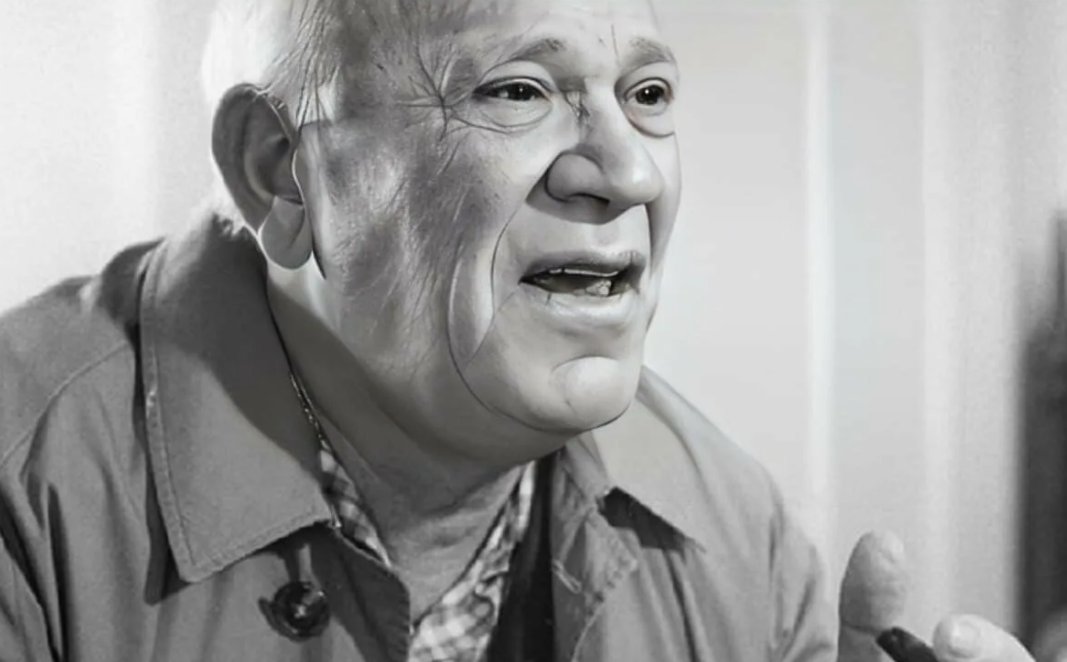Eric Hoffer’s ‘The True Believer: Thoughts on the Nature of Mass Movements’

Photo taken at a Nashville, TN MAGA Rally in May, 2018. Photo by Tabitha Kaylee Hawk (Source: Flickr)
Insights from 1951 into the Emotional Allure of Extreme Devotion to a Mass Movement
By Wayne A. Selcher, PhD* [Book Review]
Original Cover (1951)
“It is the true believer’s ability to ‘shut his eyes and stop his ears’ to facts that do not deserve to be either seen or heard which is the source of his unequaled fortitude and consistency. He cannot be frightened by danger nor disheartened by obstacles nor baffled by contradictions because he denies their existence. Strength of faith, as Bergson pointed out, manifests itself not in moving mountains but in not seeing mountains to move. And it is the certitude of his infallible doctrine that renders the true believer impervious to the uncertainties, surprises, and the unpleasant realities of the world around him.” – Eric Hoffer in The True Believer
“Where all think alike, no one thinks very much.” – Walter Lippman, mid-20th Century American journalist
After the Second World War, there were attempts among social thinkers in the Western World to discern how and why the culturally-advanced German nation fell victim to the evils of Nazism, and what socio-psychological similarities existed within Stalin’s totalitarian USSR under communism. This research led in most cases to the study and explanation of mass movements, including their effects on social groups and individuals. One of the most famous works to come out of this early line of inquiry was Hannah Arendt’s book The Origins of Totalitarianism (1951). In the same year, Eric Hoffer published The True Believer: Thoughts on the Nature of Mass Movements, which also analyzed the attraction of extremist beliefs of whatever variety that took on the nature of a mass movement and attracted fanatical followers.
Both classic books have gone through many editions and are still in print and easily available online. Hoffer’s original 1951 volume is available cost-free in the Internet Archive and his views have been the subject of many commentaries. The directions of considerable research on the attraction and growth of mass movements and fanaticism since the early 1950s have incorporated some of his observations, implicitly or explicitly. He examined the threats to critical and independent thought, democracy, and human well-being that can arise from individuals’ fanatical and sometimes mystical devotion to a demagogical and charismatic figure who is the leader of a mass movement that they join enthusiastically, subsuming their very being into absolute self-identification with the supposed “savior,” in actuality a remote stranger to them and far removed from their daily life. Hoffer argued that this deliberate submersion of the bored or frustrated self into the significance and symbolism of a larger movement, in total commitment to the greater cause, is the very essence, attraction, and excitement of mass movements to their “true believers,” who gain a larger sense of belonging, enthusiasm, and purpose. The pressure to conform becomes very strong, fanaticism may be encouraged, and dissenters (“heretics”) are disdained and rejected by the purists as a threat to the noble cause.
Eric Hoffer (1902-1983) was not an academic, social scientist, or formal scholar, but rather a self-taught laborer, an independently-thinking longshoreman, which makes the discernment and the great public acclaim of his observations in various published works all the more remarkable. His “longshoreman philosophy” style was that of pithy commentary, a series of observations, not theoretical social science or abstract philosophy, of valuable insights rather than prolonged logical argumentation fastened onto intellectual concepts. As such, his works (including many books) are more readily grasped by a broader audience, as he intended. Yet his work received a number of awards and intellectual acclaim, and for a time in the 1960s he was a visiting professor at the University of Berkeley, where he was repulsed by the violence of the student movement that began there. President Dwight Eisenhower recommended The True Believer to friends and cited it in a press conference in the early 1950s. Hoffer was honored by President Ronald Reagan with the Presidential Medal of Freedom in February 1983, several months before his death.
 Eric Hoffer (Source: VoegelinView)
Eric Hoffer (Source: VoegelinView)
Hoffer’s skeptical insights are relevant to a wide variety of highly emotional mass movements around the world today, political and religious, including even the wild devotion of millions of fans to singer Taylor Swift and the absurd American conservative conspiracy theories about her in 2024. On the other hand, some may find some of Hoffer’s observations about certain aspects of society from 1951 to be out of tune with the beliefs and mores of American society in the 2020s.
Several examples of Hoffer’s many observations from The True Believer can serve to make the outlines of his perspective clear and to identify salient socio-psychological characteristics of current or recent mass movements:
- Mass movements have their intellectuals, often as founders, but showmanship of a flamboyant and charismatic leader more than an elaborate ideology is crucial for the fervency of many true mass movements, as far as the mass of followers is concerned —“The quality of ideas seems to play a minor role in mass movement leadership. What counts is the arrogant gesture, the complete disregard of the opinion of others, the singlehanded defiance of the world.”
- The need to be intransigently angry and self-righteously against something seen as evil as much as for something is crucial—“Hatred is the most accessible and comprehensive of all the unifying agents. Mass movements can rise and spread without belief in a god, but never without a belief in a devil… Usually the strength of a mass movement is proportionate to the vividness and tangibility of its devil.”
- Mass movements easily attract socially isolated and perhaps violent actors—“The permanent misfits can find salvation only in a complete separation from the self; and they usually find it by losing themselves in the compact collectivity of a mass movement.”
- A mass movement requires outrage and adamant repudiation of the currently dominant “corrupt” socio-political circumstances and worldview for an alternative “politically correct” counter-perspective that true believers possess and act upon by faith to bring about a new order—“It is startling to realize how much unbelief is necessary to make belief possible.”
- Serving a “larger purpose” in a “self-sacrificing” way, blind to doubt and ironies, can lead to proud certitude and consequent vanity and smugness—“There is no doubt that in exchanging a self-centered for a selfless life we gain enormously in self-esteem. The vanity of the selfless, even those who practice utmost humility, is boundless.”
The broad outlines of Hoffer’s explanations of the dynamics of a mass movement in The True Believer as a whole are quite useful to understand the workings of Donald Trump’s semi-charismatic leader-follower relationship in Make America Great Again (MAGA), which now dominates the Republican Party. (I am not including in this category the more casual supporters of Trump nor those who have an ongoing loyalty to the Republican Party itself rather than highly personalistic and intense devotion to Trump.) Hoffer’s ideas also cast light on the solid support from religious conservatives (especially evangelicals) that MAGA enjoys from a faith-based group. Trump called MAGA in June 2022, and on other occasions, in his typical self-aggrandizing way, “the greatest political movement of all time.”
 Trump and his characteristic MAGA cap (Photo: Gage Skidmore/flickr/cc)
Trump and his characteristic MAGA cap (Photo: Gage Skidmore/flickr/cc)
Alexander Hinton, an anthropologist specializing in peace and conflict who attended the annual Conservative Political Action Conference (CPAC) in February 2024, observed “CPAC’s love of Trump is shocking to many on the left. But at CPAC, Trump is viewed as America’s savior [emphasis added]… Ultimately, CPAC conservatives believe Trump is their best bet to defeat the radical-left ‘desecrators’ who seek to thwart him at every turn – including, as they constantly complained at CPAC, social media bans, ‘fake news’ takedowns, rigged voting, bogus lawsuits, unfair justice, and lies about what they call the Jan. 6, 2021, ‘protest’.”
Maintaining absolute faith in the leader and a personal identification with him as a “fighter” is crucial for the most enthusiastic MAGA adherents, so any doubt or contrary information is explained away or dismissed as “enemy” propaganda or disinformation. At rallies, Trump usually states his case for the identity of his followers with him, to stand against his several indictments: “In the end, they’re not coming after me. They’re coming after you — and I’m just standing in their way.” Zealousness on behalf of the cause can supersede respect for established democratic norms, such as the rule of law, and encourage violence in the pursuit of the “greater purpose,” as shown by repeated polls in the United States. Mass movements can deteriorate into rage, hate, grievances, conspiracy theories, absolutism, demonization of opponents, irrationality, and dreams of an authoritarian leader who will defend “your side” and crush your “enemies.” They mobilize millions of voters who detest “politics as usual,” but their dynamics, demand for radical change, urgency, and strong sense of being threatened and unjustly thwarted can readily destabilize a society and engender counter-reactions, thus posing a serious challenge to democratic institutions.
Hoffer’s volume reminds us that reason-based democracy is not the standard way of governing in human history; authoritarianism and autocracy are. Vladimir Putin, admired by many American conservatives, including Trump, is closer to the “norm” in the broad sweep of human history than is Joe Biden. The “(Moral) Arc of History,” the liberal concept that human rights, reason, and democracy will inevitably prevail as humanity “progresses,” is wishful ethnocentric thinking.
* Wayne A. Selcher, Ph.D. is Professor of International Studies Emeritus, Department of Political Science, Elizabethtown College, PA, USA. His major academic interests are Comparative Politics, American society and politics in comparative context, American Foreign Policy, Latin American Politics and Foreign Policy (especially Brazil), and Internet use in international studies teaching and research. He is the creator and editor of the WWW Virtual Library: International Affairs Resources, a web guide for online international studies research in many topics. E-mail: wayneselcher@comcast.net.
** Final review and edit: Tatiana Teixeira. First version received in March 10th, 2024. This Resenha OPEU does not necessarily reflect the opinion of OPEU, or INCT-INEU.
*** About OPEU, or to contribute articles, contact editor Tatiana Teixeira. E-mail: tatianat19@hotmail.com. About our Newsletters, for press service, or other matters, contact Tatiana Carlotti. E-mail: tcarlotti@gmail.com.
Subscribe to our Newsletter and receive OPEU content by email.
Follow OPEU on Instagram, Twitter, Linkedin and Facebook
and follow our daily posts.
Comment, share, send suggestions, be part of our community.
We are a unique Brazilian research observatory on the United States,
with weekly, free, non-profit content.






















